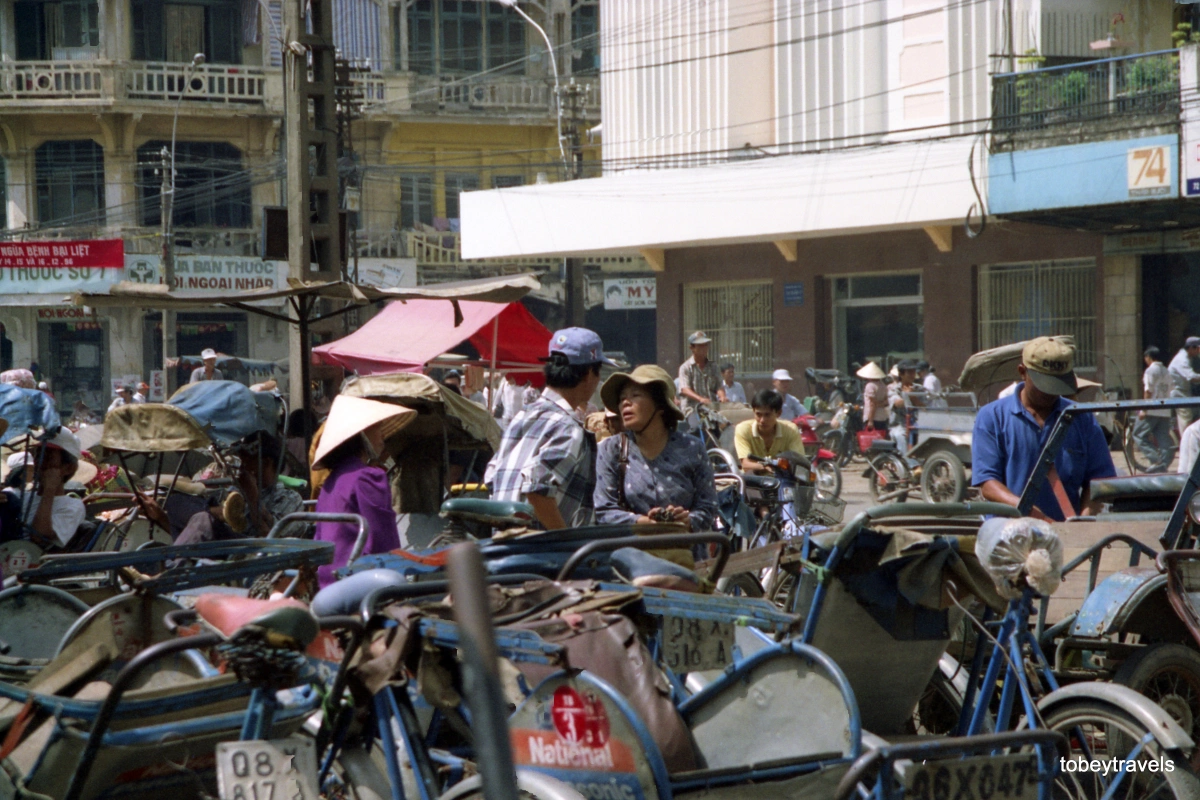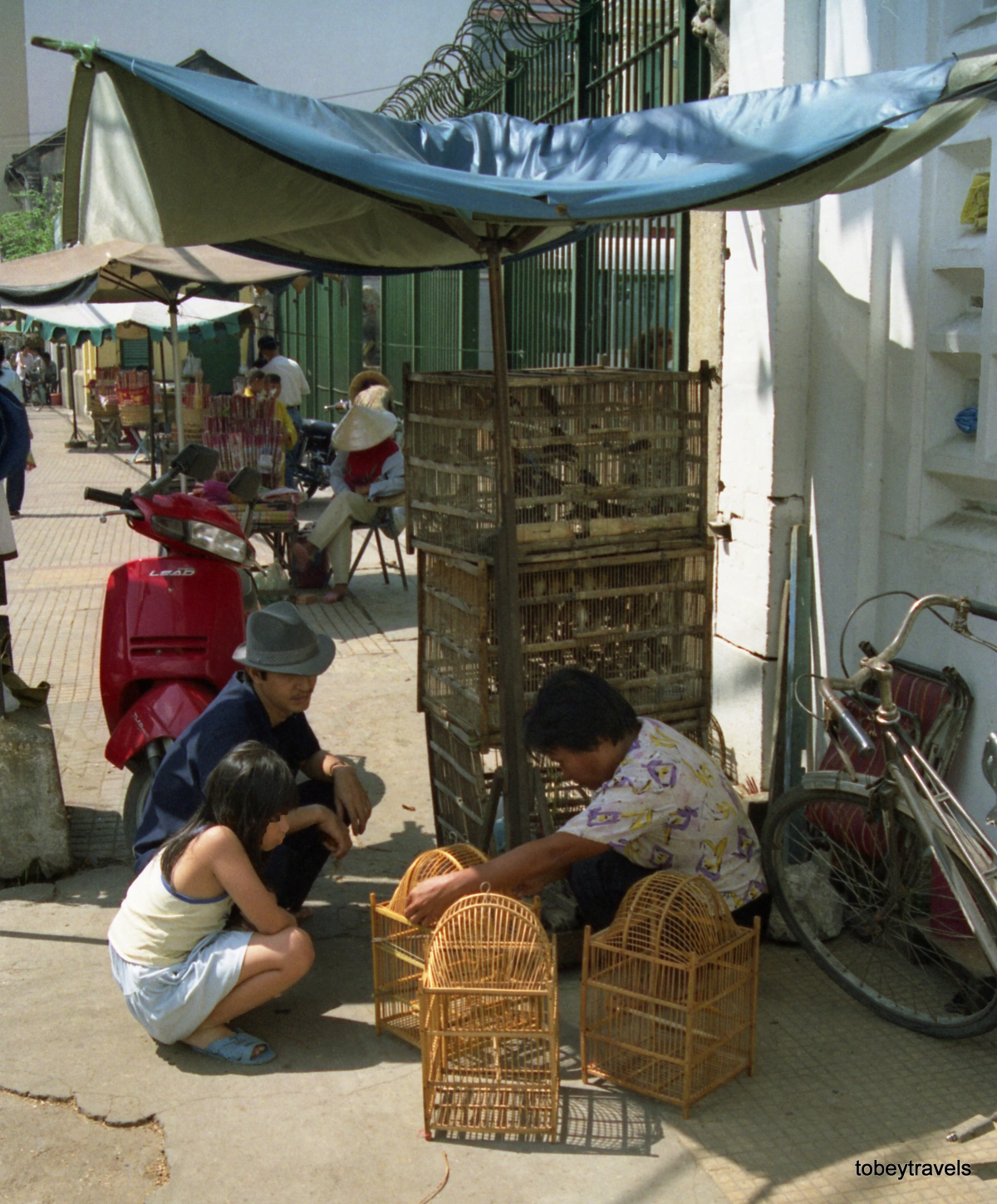In 1996, Tobey embarked on her first long trip across Vietnam. She and her husband joined a 21-day tour with a small group, traveling from Hanoi to Ho Chi Minh City by road and train.
Ho Chi Minh City was their final stop, where she stayed for two days, exploring famous landmarks such as the Independence Palace (pictured), the War Remnants Museum, and the Cu Chi Tunnels.


Traffic on Le Loi Street in District 1 in 1996. At that time, cyclos and xe lam (autorickshaws) were common on the city roads.
Tobey's first impression of HCMC was that there were few cars on the streets, with bicycles and motorbikes being the primary modes of transport.
"People curiously looked at us, the rare foreign visitors, and they were shy when we started talking," Tobey recalled.
After three decades, Le Loi Street is now one of the busiest areas in the southern metropolis and home to luxury hotels, shopping complexes, and high-rise buildings.


She said the Independence Palace preserves a proud past of the Vietnamese people. When she went up to the roof of the palace to see the display of the UH-1 helicopter of the Air Force of the Republic of Vietnam, she was impressed by the red circle with the inscription: "At 8:30 a.m. on April 8, 1975, Lieutenant pilot Nguyen Thanh Trung flew an F5E and dropped two bombs that hit the target here."

During her two days in HCMC, Tobey also ventured to the suburbs and visited Cu Chi, where the tunnel system, stretching for hundreds of kilometers, "amazes the world."
While exploring the upper level of the tunnel, she marveled at the intelligence and bravery of the Vietnamese people. She remembered the experience of several people in her group struggling to breathe due to the narrow space while crawling through the tunnel.
A tall man became stuck for several minutes and had to be assisted out by others, Tobey shared.
In 1996, HCMC's Central Post Office was deserted, with only a few tourists and vehicles passing by.
After the SARS outbreak in 2003, Tobey and her husband returned to the city, being among the few foreign tourists at the time.
Seven years after her first trip across Vietnam, she found the city "completely changed" with vehicles everywhere, and people more affluent and dynamic.
"The SARS lockdown caused many difficulties for shop and restaurant owners, so they were very happy to see tourists gradually returning," Tobey said.
For more than 20 years, she has not returned to HCMC.
She misses the old city with its quiet alleys and ancient architectural houses. Through images on social media, the tourist imagined the city had "completely changed" and hopes to soon revisit Vietnam and HCMC—a place known for its cuisine, people, and historical landmarks.










